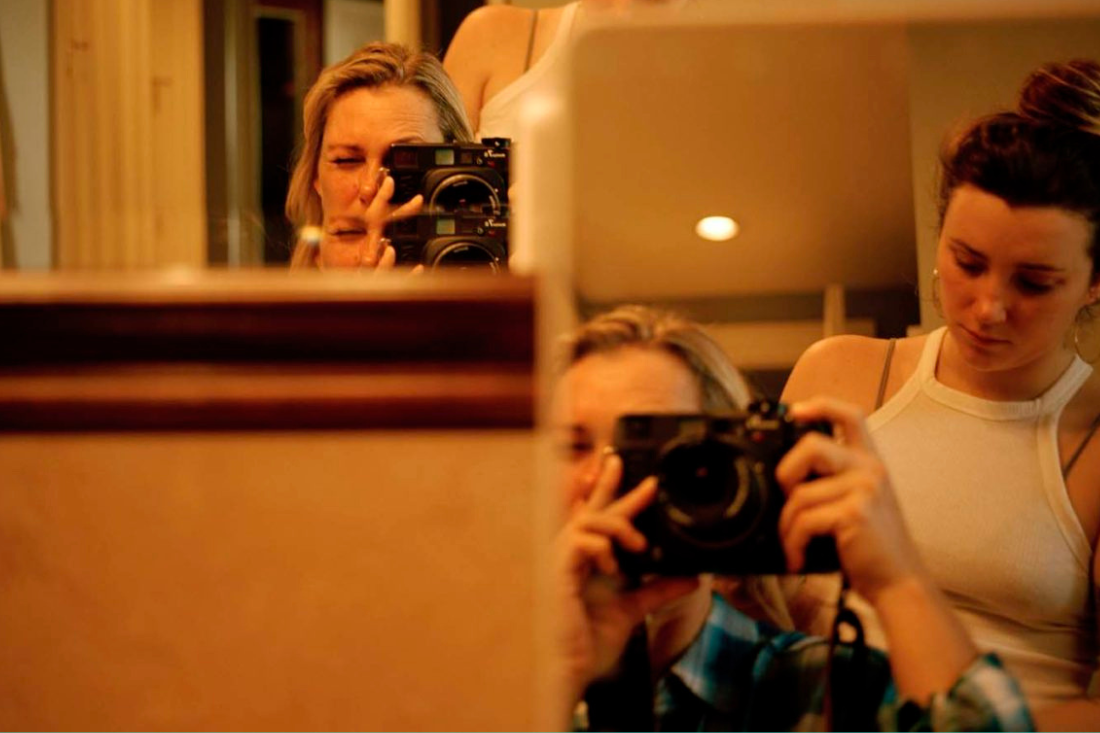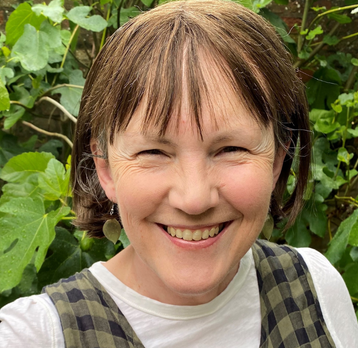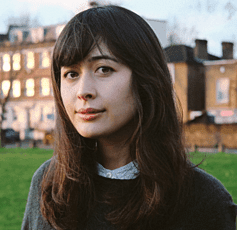Writing Memoir Workshop

Course Information
Where: Online
Date: TBA
Duration: 24 weeks
Skill level: Intermediate - Advanced
Frequency: Fortnightly
Sessions: 11
Price: £3,000
Payment plans available
Register your interest to be notified when applications reopen.
Unlocking Memory and Shaping Experience
This immersive, deep-dive course provides inspiration and practical advice as you undertake a long-form memoir project. It draws on the resources and expertise of Granta magazine, a publisher renowned for nurturing some of the most influential and daring writers of memoir, and the expert guidance of an experienced writer of creative non-fiction.
Over six months, you will move from initial ideas towards the first 10,000 words of your memoir, exploring the possibilities the form offers, and your motivations for telling your story. You will examine the boundaries of the self and push at the limitations of the personal. In each session we investigate the debates around truth and reality that make this genre so rich, while interrogating the central questions at the heart of your work. We will look at hands-on techniques that will hone your voice, line by line, and encourage you to experiment with both structure and storytelling.
Alongside a small group of likeminded writers, you’ll look at the form of the memoir and stress-test your ideas against the elasticity of the genre: where does your writing sit in the intertwining mix of biography, history, travel writing, cookbook, ideas-led science and philosophy – and when does fact become fiction? Learn how to sensitively negotiate the debate around who owns a story; how to effectively integrate research and archival material such as images; and how to transform personal memory into relatable and readable scenes.
You’ll be given a free one-year digital subscription to Granta magazine, as well as access to curated extracts from Granta books, and the magazine, podcast and video archive. Throughout the course there is insight from guest authors and Granta staff.
Finish the course with a stress-tested outline, the first 10,000 words of your memoir, a detailed proposal to take to an agent or publisher, plus the confidence and resilience to maintain momentum with your project after the course ends.
Entry is by application to ensure you get the most out of the course. Answers to commonly asked questions can be found in the Frequently Asked Questions page.
Course completion opens up our Alumni Space, which provides ongoing access to industry professionals, including authors, Granta editors and literary agents.
Video | Midge Gillies
Dr Midge Gillies is the author of Writing Lives: Literary Biography and co-author of Literary Non-Fiction: A Writers’ & Artists’ Companion. She is a highly experienced educator, having taught creative writing for more than twenty years at Cambridge University, as well as biography masterclasses for the University of East Anglia.
Midge Gillies | on Memoir
My name’s Midge Gillies and I’m the Course Director of Granta’s Memoir Workshop. I’ve written ten books of creative non-fiction, and in many of those I’ve used memoir as a way of exploring bigger issues that I’m writing about in book form. I’ve taught creative writing for over twenty years, most recently at the University of Cambridge Institute of Continuing Education, where I was Academic Director of Creative Writing.
I love teaching creative writing, and I particularly love hearing about people’s stories. For me, the perfect class is diverse in every possible way. I love having a class with people from around the world and of different ages and backgrounds, so I can’t wait to hear your stories, and I’m sure that we will all learn from one another and produce some amazing writing.
Course Syllabus
In our first session we will discuss your motivations for embarking on the creation of a memoir. Do you want to make sense of a particular issue or moment in time? Do you want to tell your side of a story, or interrogate your own understanding of a particular set of events? Who is your intended audience, and what would success mean for your writing project? We will consider the implications for both you, as the writer, and the people you are writing about, and look at ways to build on your initial ideas and inspirations.
There will be a group Zoom session with your tutor.
In this session we’ll discuss what falls into the genre of ‘non-fiction’ and how that category becomes even more elastic when you add the word ‘creative’. Where does non-fiction end and fiction begin? Are they so intertwined that it would be more accurate to say that they blend? What do poetry and the lyric essay bring to the table? Start stress-testing your idea by examining how memoir can intersect with countless other forms, such as biography, history, family history, travel writing, the cookbook, ideas-led science or philosophy, and ask how your own story might make use of these distinctive formal avenues.
We’ll start to think about your characters and the world they inhabit. You will experiment with the advantages of hands-on experience and ‘footstepping’ to recreate a landscape, and what part your imagination can play when working with facts. There are practical ways to deploy all your senses and to favour specificity over cliché in your description. We’ll explore point of view and tenses, with a particular focus on the use of the historic present tense.
One-on-one Zoom call with the tutor, to discuss your work.
A memoir is now rarely structured in a solely chronological order. Indeed, the structure is often an intrinsic part of the story or the answer to a question. We’ll look at how subject matter itself can offer the answer to the conundrum of how best to tell your story, and how to use time effectively in your storytelling.
You’ll explore the right structure for your memoir using techniques such as mind mapping, chapter breakdowns and writing in scenes.
There will be a live Q&A with a guest author.
Memory is a slippery commodity, but many writers embrace it as a way to gain a foothold on a version of the truth. In this session, we’ll develop a strategy for dealing with contested accounts of the past. Does it matter if two people remember the details of a day differently but agree on the impact of what happened, or vice versa? Perhaps it’s simpler – and more honest – to fictionalise your story, or is this dodging the issue of who owns a story and its truth?
Is it permissible to concertina several instances into one scene for dramatic effect? We’ll stimulate memories by using photos, objects and talking to other witnesses.
You will receive personalised feedback on your work from your tutor.
By now you have a strong sense of your own writing voice, but you may find that your voice is changing. At the midpoint of the course, we’ll take stock of where you are in your memoir and whether other characters are making a case to be heard. Has the focus of the narrative changed and are there other people you need to consult?
Group Zoom session to discuss thoughts, questions or concerns about your work so far.
In this session we will look at a range of images – photos, line drawings, paintings, maps – and how to use them in your memoir. Discover where to go to find images and potential costs of using them. We’ll look at how images can become part of your story and its structure, as well as unlocking memory and enhancing description. You’ll learn about recent developments in lexi-visual narrative techniques, and how the comic book and graphic novels have enriched memoir.
Practical advice on carrying out research online, and in libraries and archives. We will discuss the use of oral history, and the moral and legal obligations when interviewing someone, as well as copyright issues with sources such as diaries and letters.
What to do if you come away from your research empty-handed? How do you fill in gaps or should they be left bare? Is there such a thing as too much research and how do you know when to stop researching?
In this session, we’ll revisit your work so far and adapt it to fit the ways your story has evolved. You will reflect on your role as a writer, and answer the following questions: why are you uniquely positioned to tell this story, and where does your memoir sit in the current landscape of published books?
You will receive tutor feedback on your first 5,000 words.
There will be a Zoom Q&A with a literary agent.
Editing can be a uniquely satisfying and creative process. You’ve already written several thousand words of good prose; now is the time to make it even better. In this session we’ll practise different types of editing – from line edits to structural changes and editing for accuracy. You’ll draw up a list of editing tips for yourself, and think about who to share your work with, why and when.
Group Zoom session to ask final questions before we head into quiet writing time.
The focus of this final session is to concentrate on writing and on applying the lessons learnt over the previous months. Use our Pomodoro timer to write in companionable silence, and plan ways to boost your resilience as your memoir reaches a wider audience. You’ll develop ways of turning procrastination to your advantage and tackling writer’s block: what that often-used term might mean and how it might be addressed.
By the end of this session, you’ll have 10,000 words and a finalised submissions package you can send to agents, and you’ll also learn about the Granta submission process.
Live Q&A with a Granta guest.
You will be invited to a one-to-one exit tutorial with your tutor to discuss your work and where to go next.
Throughout the course, enjoy exclusive video interviews, podcasts and transcripts of conversations between editors and authors including Carmen Maria Machado, Derek Niemann, Anthony Anaxagorou, Anjam Sundaram, Rebecca May Johnson, Miranda France, Amitava Kumar, Joanna Biggs, Seán Hewitt, Thomas Duffield, Philip Marsden, Jeremy Atherton Lin, and Joanne Limburg.
You will also be able to attend live Zoom Q&As with publishing industry guests during the eight weeks. Previous guests include author Freya Bromley, Deputy Editor of Granta Luke Neima, Editor at Granta Books Dan Bird, author Emmanuel Iduma, and literary agent Matthew Marland.
This course requires up to 10-12 hours of study per week. Find out more about the course and teaching method from our education partners Professional Writing Academy.
Midge Gillies | Course Director

Dr Midge Gillies is the author of Writing Lives: Literary Biography and co-author of Literary Non-Fiction: A Writers’ & Artists’ Companion. She is a highly experienced educator, having taught creative writing for over twenty years at Cambridge University, as well as biography masterclasses for the University of East Anglia.
Memoir is one of today’s most exciting and experimental genres, allowing the author to borrow from all types of writing to produce something both entertaining and significant. The workshop will give writers the skills and confidence to pursue their goals in this genre – whether “simply” completing a manuscript or preparing work for publication.
Rowan Hisayo Buchanan | Course Tutor

Rowan Hisayo Buchanan is the author of Harmless Like You, Starling Days and The Sleep Watcher, and editor of the anthologies Go Home! and Dog Hearted. She has won the Authors’ Club First Novel Award and a Betty Trask Award, and been shortlisted for the Costa Novel Award. Her work has been a New York Times Editors’ Choice and an NPR Great Read. Rowan is a fellow of the Royal Society of Literature, and was the recipient of fellowships from MacDowell, Hedgebrook, the Asian American Writers’ Workshop, Gladstone’s Library and Kundiman. Her essays have appeared in The Guardian, The Paris Review and The Atlantic among other places.
To me, the art of memoir is as much about attempting to understand your past as it is recording it. I’m so happy to help hold the space as these writers begin that important work.
Testimonials
The memoir course was an opportunity to listen to the lives of a group of people from around the world whose lives are intensely worth listening to. That such a group would be eager to contemplate, criticize and celebrate my own efforts was a revelation. Compound that group with a tutor of unusual sensitivity and a succession of established memoir writers willing to discuss, unstintingly, their own trials, and I think you’ve got a pretty remarkable course.
Emerging now, after six months, I’ve practiced the skills I need to complete this journey. I’ve gained wisdom and insight from my cohort – from the example of their writing and their generosity with mine – and I’m especially grateful for the gentle rudder who was our instructor, Midge, unerring in her ability to steer us in the right direction with a light but precise touch. There’s also much to love about the way the course is designed: I especially enjoyed the asynchronous study. I could work at my own comfortable pace, and it made the occasional Zoom meet-up with authors, agents, publishers and peers that much more of a treat.
This is what I missed most - the discipline of writing. You all have made me feel like a writer, who can tell a story and find somebody out there to read it. This session has changed me... I have done many things: interpreter, salesgirl, medical student, baker, travel planner, teacher, but professional writing remained beyond my reach. But, after reading and listening to so many new storytellers, I dared the thought: I can be one of them. Midge said from the start, “Play the course.”